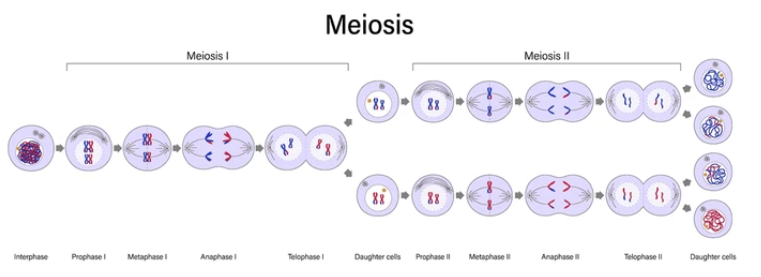The concept map of meiosis serves as a valuable tool for elucidating the complex processes involved in gamete formation and genetic diversity. By systematically breaking down the stages of meiosis, particularly the significance of homologous chromosomes and the mechanisms of crossing over and independent assortment, one can appreciate the profound implications these processes have on evolution and species resilience. However, the nuances of these interactions raise further questions about their impact on genetic variation and the adaptability of organisms in fluctuating environments. What implications might this hold for future studies in genetics and evolutionary biology?
Understanding Meiosis
Meiosis is a crucial biological process that occurs in sexually reproducing organisms, characterized by a series of specialized cell divisions that ultimately reduce the chromosome number by half.
The meiosis definition encapsulates this vital function, ensuring genetic diversity.
However, meiotic errors can arise, leading to aneuploidy or other genetic disorders, underscoring the importance of accurate chromosomal segregation in reproductive success.
Read More Cute:_Dzaztai22k= Homecoming Poster Ideas
Stages of Meiosis
During the process of meiosis, cells undergo two distinct rounds of division, known as meiosis I and meiosis II, each comprising several key stages.
The meiosis phases include prophase, metaphase, anaphase, and telophase, followed by cytokinesis.
These stages are crucial for gamete formation, ensuring genetic diversity through recombination and independent assortment, ultimately contributing to the evolutionary adaptability of populations.

Importance of Homologous Chromosomes
Homologous chromosomes play a pivotal role in the process of meiosis, particularly during the first division, meiosis I.
Their importance lies in homologous pairing, which ensures that each chromosome aligns correctly with its counterpart. This alignment facilitates genetic recombination, allowing for the exchange of genetic material.
Such processes are crucial for genetic diversity, ultimately influencing the evolutionary potential of a species.
Genetic Variation and Implications
Genetic variation is a fundamental outcome of meiosis, with profound implications for biological diversity and evolutionary processes.
Through mechanisms like crossing over, meiosis enhances genetic diversity, providing organisms with evolutionary advantages. This variation increases reproductive success by fostering adaptability to changing environments.
Ultimately, the genetic reshuffling during meiosis is crucial for the survival and evolution of species, enriching the tapestry of life.
Read More Cute:_F2pmnsyfjk= Halloween Wallpapers
Conclusion
The intricate process of meiosis serves as the foundation for genetic diversity, a vital element for the survival of species in an ever-changing world. As homologous chromosomes align and exchange genetic material, the potential for variation unfolds, hinting at the unpredictable nature of evolution. This delicate dance of cellular division not only shapes individual organisms but also influences the trajectory of entire populations. Ultimately, the mystery of life itself hinges on the outcomes of this remarkable biological phenomenon.
